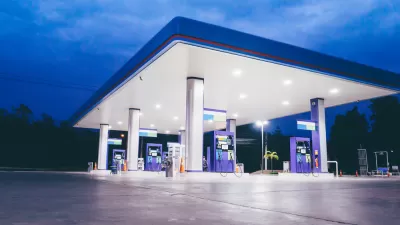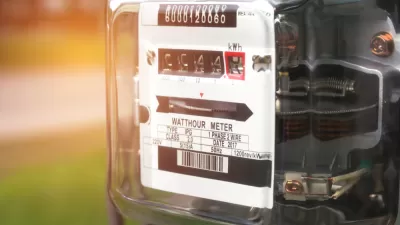Preventing gas tax and vehicle registration fee revenues from being used for non-transportation purposes is seen as key to increasing transportation revenue, be it through raising gas taxes or approving new revenue options, in Maryland and Wisconsin.
"For two decades, governors in Wisconsin have diverted revenue from the fuel tax and license and registration fees to government functions other than transportation," writes Transportation Topics staff reporter Michele Fuetsch.
Most states have some sort of lock on the transportation funds that they generate through fuel taxes, but as a 2011 survey by the American Association of State Highway and Transportation Officials found, the locks are not tamper-proof.
Connecticut legislators "tried and failed to (pass) a bill that would have put a constitutional amendment on the ballot to prevent diversions from the transportation fund. “We’re sick and tired of having some of the highest fuel taxes in the country and the worst roads,” said Michael Riley, president of the Motor Transport Association of Connecticut."
“The money that we’re paying for highway user fees is being diverted regularly to general fund expenses,” Riley said.
“When you pay your licensing fee, your car registration, those types of things, that’s what the intended purpose is, and when they’re not used for that, people find out and they get upset,” said Rep. Keith Ripp, chairman of the Wisconsin House Transportation Committee.
Ripp said policymakers will have to consider everything from tolling to higher fuel taxes and registration fees to raise that amount, “but first we have to protect that fund.”
"Governors and lawmakers tapped Maryland’s transportation fund to avoid making hard tax decisions about how to pay for other government functions," said Maryland State Sen. James Rosapepe, "who sponsored the bill that advanced the proposed constitutional amendment to the ballot," writes Fuetsch.
However, in many, if not most states, the opposite may be more likely the case as general funds are used to make up gas tax revenue shortfalls that have not seen gas tax increases in decades.
According to the Institute on Taxation and Economic Policy's April report, "Among the thirty-two states levying a “fixed-rate” gas tax, the average length of time since the last gas tax increase is 17.2 years. Sixteen states have gone two decades or more without a gas tax increase."
Maryland increased its gas tax by four cents in July last year to 27-cents, now 25th highest in that nation, as a result of new legislation spearheaded by Gov. Mark O'Malley.
Wisconsin's 32.9-cent gas tax, 15th highest in the nation, was last increased eight years ago. [See API (PDF)].
If the federal Highway Trust Fund is any model, locking up gas tax revenue in a trust fund, protected by constitutional amendment, is no guarantee that gas taxes will be raised. In the patch bill known as H.R. 5021 - Highway and Transportation Funding Act of 2104, $10.9 billion of general fund revenue will be transferred to the Highway Trust fund - for ten months.
Before that bill was passed on July 31, "over $55 billion in general fund revenues (not including stimulus funding)" was transferred to the Highway Trust Fund since 2008, wrote Joshua L. Schank, president and chief executive of the Eno Center for Transportation in a recent New York Times op-ed posted here.
FULL STORY: Voters in Wisconsin, Maryland to Decide on Better Protections for Transport Funds

Maui's Vacation Rental Debate Turns Ugly
Verbal attacks, misinformation campaigns and fistfights plague a high-stakes debate to convert thousands of vacation rentals into long-term housing.

Planetizen Federal Action Tracker
A weekly monitor of how Trump’s orders and actions are impacting planners and planning in America.

In Urban Planning, AI Prompting Could be the New Design Thinking
Creativity has long been key to great urban design. What if we see AI as our new creative partner?

King County Supportive Housing Program Offers Hope for Unhoused Residents
The county is taking a ‘Housing First’ approach that prioritizes getting people into housing, then offering wraparound supportive services.

Researchers Use AI to Get Clearer Picture of US Housing
Analysts are using artificial intelligence to supercharge their research by allowing them to comb through data faster. Though these AI tools can be error prone, they save time and housing researchers are optimistic about the future.

Making Shared Micromobility More Inclusive
Cities and shared mobility system operators can do more to include people with disabilities in planning and operations, per a new report.
Urban Design for Planners 1: Software Tools
This six-course series explores essential urban design concepts using open source software and equips planners with the tools they need to participate fully in the urban design process.
Planning for Universal Design
Learn the tools for implementing Universal Design in planning regulations.
planning NEXT
Appalachian Highlands Housing Partners
Mpact (founded as Rail~Volution)
City of Camden Redevelopment Agency
City of Astoria
City of Portland
City of Laramie




























